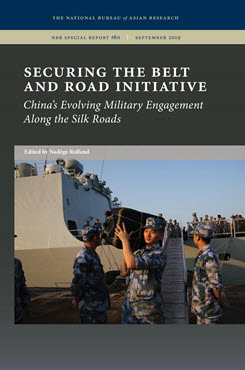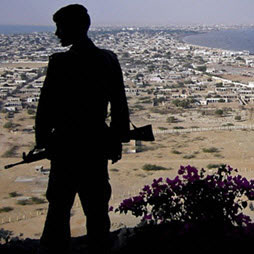China's Security Activities in Tajikistan and Afghanistan's Wakhan Corridor
This essay examines the impact of the Belt and Road Initiative on Chinese security activities in Tajikistan and Afghanistan’s Wakhan Corridor and argues that China’s increasing assertiveness in these regions is manifest in capacity building, joint operations, and greater alignment of security interests.
EXECUTIVE SUMMARY
MAIN ARGUMENT
China is beefing up its security presence in Tajikistan and the Afghan Wakhan Corridor in order to maintain domestic security in Tajikistan and to prevent instability from spilling over from Afghanistan into Tajikistan and then into Xinjiang. To achieve this goal, China is implementing a three-pronged security approach that involves (1) providing equipment and facilities to boost Tajikistan’s security capabilities, (2) conducting joint operations with Tajik and Afghan forces near the border of all three countries, and (3) aligning Tajikistan’s security interests with its own. China is facing similar challenges to implementation to those that the U.S. and Russia confronted before it—Tajikistan’s security forces are beset with corruption and institutional weakness. To address these challenges, the joint operations component attempts to fill security gaps in the geographic area nearest China.
POLICY IMPLICATIONS
- China is unlikely to become involved in the broader Afghanistan conflict. Instead, the People’s Armed Police deployment based in Shaymak, Tajikistan, as well as joint operations with Tajik and Afghan forces, will at this stage continue to be primarily focused on securing the Afghan border with Tajikistan and China.
- Beijing is seeking to co-opt and strengthen local forces to protect Chinese projects and interests. China already uses this method in countries such as Pakistan and could expand this approach to secure its assets and interests elsewhere.
- The global détente between China and Russia does not extend to security in Central Asia, and the two sides are not cooperating in Tajikistan. To the contrary, since around 2016, Russia has increased its security presence in Tajikistan in response to China’s growing security activities.
Dirk van der Kley is the Program Director for Policy Research at China Matters. He is also a PhD candidate in the Centre for Arabic and Islamic Studies at the Australian National University. He previously worked as a Research Associate in the East Asia Program at the Lowy Institute.



